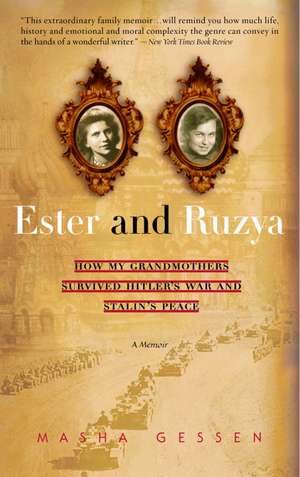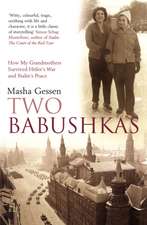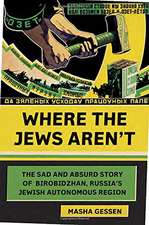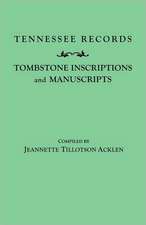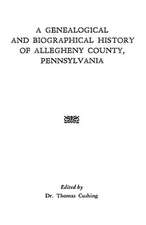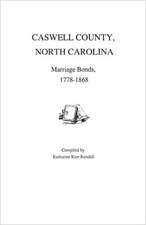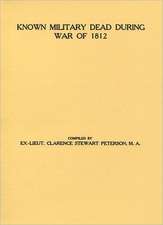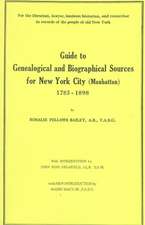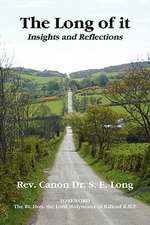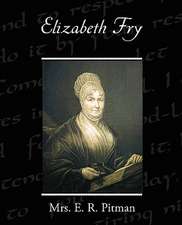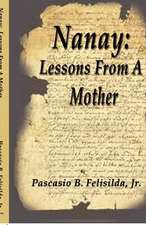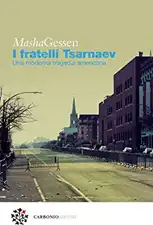Ester and Ruzya: How My Grandmothers Survived Hitler's War and Stalin's Peace
Autor Masha Gessenen Limba Engleză Paperback – 30 sep 2005 – vârsta de la 14 până la 18 ani
Vezi toate premiile Carte premiată
National Jewish Book Award (2005)
In this deeply moving family memoir, journalist Masha Gessen tells the story of her two beloved grandmothers: Ester, the quicksilver rebel who continually battled the forces of tyranny; Ruzya, a single mother who joined the Communist Party under duress and made the compromises the regime exacted of all its citizens. Both lost their first loves in the war. Both suffered unhappy unions. Both were gifted linguists who made their living as translators. And both had children—Ester a boy, and Ruzya a girl—who would grow up, fall in love, and have two children of their own: Masha and her younger brother.
With grace, candor, and meticulous research, Gessen peels back the layers of secrecy surrounding her grandmothers’ lives. As she follows them through this remarkable period in history—from the Stalin purges to the Holocaust, from the rise of Zionism to the fall of communism—she describes how each of her grandmothers, and before them her great-grandfather, tried to navigate a dangerous line between conscience and compromise.
Ester and Ruzya is a spellbinding work of storytelling, filled with political intrigue and passionate emotion, acts of courage and acts of betrayal. At once an intimate family chronicle and a fascinating historical tale, it interweaves the stories of two women with a brilliant vision of Russian history. The result is a memoir that reads like a novel—and an extraordinary testament to the bonds of family and the power of hope, love, and endurance.
From the Hardcover edition.
Preț: 119.33 lei
Nou
Puncte Express: 179
Preț estimativ în valută:
22.83€ • 23.84$ • 18.90£
22.83€ • 23.84$ • 18.90£
Carte disponibilă
Livrare economică 14-28 martie
Preluare comenzi: 021 569.72.76
Specificații
ISBN-13: 9780385336055
ISBN-10: 0385336055
Pagini: 371
Dimensiuni: 135 x 212 x 19 mm
Greutate: 0.4 kg
Editura: Dial Press
Locul publicării:New York, NY
ISBN-10: 0385336055
Pagini: 371
Dimensiuni: 135 x 212 x 19 mm
Greutate: 0.4 kg
Editura: Dial Press
Locul publicării:New York, NY
Notă biografică
Masha Gessen is a staff writer at The New Yorker and the author of several books, among them The Future Is History: How Totalitarianism Reclaimed Russia and The Man Without a Face: The Unlikely Rise of Vladimir Putin. The recipient of numerous awards, including a Guggenheim Fellowship and a Carnegie Fellowship, Gessen teaches at Amherst College and lives in New York City.
Extras
Chapter One
Like any place that has been lost, Bialystok was heaven on Earth. Or the center of the universe. That, in fact, it was--or at least it was a sort of universal crossroads. It had been ruled by Prussia, Russia, and Poland, and its streets rang with Yiddish, Polish, Hebrew, Belarusian, German, and Russian: this was perhaps why Esperanto was invented there. It was also--no, it was most importantly--a center of Jewish life in Poland between the two world wars, when Poland was the center of Jewish life in Europe. More than half of its one hundred thousand residents were Jewish; and Jews, having lived there for five centuries, dominated the city's business, political, and cultural life. The current crop of Judeophile Polish historians is fond of claiming that Bialystok in the interwar period was spared the ugly anti-Semitic incidents that grew frequent in the rest of Poland, but this is not so. It is nonetheless true that Bialystok had more synagogues per capita than any city in the world, that in addition to Jewish schools and the world's first Jewish ambulance service it had Jewish old-age homes and soup kitchens, an orphanage and various other charities, and that all of this earned it the moniker "The City with the Golden Heart" among European Jewry.
Bialystok was neither particularly flat nor especially hilly. It had a broad main promenade and a web of crooked cobblestone streets. It had a Jewish quarter that was largely poor, and it had other, more affluent neighborhoods, where the landlords were mixed and the tenants were mostly Jewish. It had ambition. Forty years after the city was destroyed, Jewish survivors living in New York published a memorial book that overflowed with pride in the city's prewar accomplishments: "Bialystok's streets grew more beautiful. . . .Electric cables were laid under the ground, streets were widened, avenues were lined with trees, and a new sewer system was installed. Large new apartment buildings and four-family homes were constructed."
In one of these four-family homes on Zlota Street lived the Goldbergs, my grandmother Ester's family. The name of their street in Polish and their surname in Yiddish meant "golden," and they might have joked about this without a trace of embarrassment, because they really were one of Bialystok's golden families. Her father, Jakub, was a big man. Physically, he was hulking: nearly two meters tall, and robust to the point of appearing about to burst out of his suits. Politically, he was imposing. A member of the General Zionist organization, he was an activist of European stature, which certainly commanded respect locally. And locally, too, he was active, as a member of the municipal council--the city's main governing body--and, later, of the kehilla, the board elected by the Jewish community. Financially, chutzpah was his main capital. A bank he had inherited from his grandmother went bust in the worldwide economic crash of 1929, but Jakub refused to scale back: the fancy apartment, one of the city's few phone lines, Ester's governess, and the other help--none of this would be given up. "If I die tomorrow, do I want to be remembered as the Goldberg who paid his debts on time?" He apparently preferred to be remembered as the Goldberg who knew how to live well. He would ultimately be remembered as neither, but he was basically right: life would not go on like this much longer, and, anyway, he did not mind the gaggle of creditors following him around. He briefly tried going into business by buying a train car's worth of candles he planned to resell, but the merchandise arrived without wicks. He ultimately found a job selling insurance for a large Italian company, but he never did pay off all his debts. Nor did he buy an insurance policy--a fact his wife discovered when their apartment was robbed while they were away on holiday, and his descendants learned about six decades later, when the company in question began paying on the life insurance policies of Holocaust victims.
Jakub's wife, Bella, on the other hand, was short, even tiny, and held to an entirely different set of political beliefs. She was a member of the Bund, the Jewish workers' party. The wife of one of Bialystok's most prominent Zionists worked as, of all things, a Polish teacher at a Yiddish school. That is, while her husband devoted much of his life to promoting the study of Hebrew for the Jews' eventual return to Palestine, Bella earned her daily bread by helping Jewish children become that much more assimilated by learning the Polish language. But then, her independence did him proud, for she was a university graduate--an anomaly among Polish women at the time, especially Polish Jewish women, especially women from Chasidic families. Yes, they were both from a Chasidic family--they were cousins--and they were both atheists.
Those are the facts, as best they can be established. What could they mean? Perhaps that the Goldbergs formed that rare happy union of two people who continue to grow, independently, in more or less the same direction, conquering the world together. Raised strictly Orthodox, together they gradually mapped their path away from religion until one day Jakub shaved off his beard and exchanged the wide-brimmed fur-trimmed hat and long coat of a Chasid for a generic European suit.
Or they may have lived the uneasy union of two people who, while each is driven to act on his convictions, view the world in fundamentally different ways. As a Zionist, Jakub was convinced the Jews belonged in Palestine. Bella, a Bundist, would have subscribed to a different utopian vision, that of Jewish autonomy within Eastern Europe. She was a socialist; he was a banker. He belonged to a party that aimed to establish Jewish national unity as a far more important factor than class; her party opposed any political initiatives that were based solely on the Jewish issue. The argument between their two parties was constantly fought on the floor of the municipal council. On election day Jakub and Bella walked the streets of Bialystok with their respective placards, and he denied her his customary courtesy of walking on the pavement while she walked on the sidewalk (to lessen the nearly two-foot difference in their height).
History, in its way, has since settled their argument. The Zionists--that is, those of them who had the will, money, and luck to move to Palestine before World War II--survived. The assimilationists, or, as the Bundists were known, the "localists," died where they lived. But then, murder, even systematic and ideologically driven murder, is a function of circumstance more than anything else. Witness the Goldberg case. He was killed; she survived.
In the years leading up to his death and her unwitting escape, the arguments may or may not have subsided, but they did reach agreement on one thing. Aside from matters of politics and matters of religion, they lived a single joint project: their daughter, Ester, who was born in 1923 and grew up, as only a child of total love and devotion can, knowing that she was the smartest, most beautiful, and luckiest girl, who happened to live in the center of the universe.
May 28, 1936
This is easily the best day of the year. For the holiday of Shavuot, the Bialystok Hebrew Gymnasium suspends classes and marches its entire student population of several hundred from its imposing brick headquarters on Sienkiewicz Street, down Lipowa, the main street--decorated in lavish green for the holiday--through the park and past the staring occupants of the Forty-first Infantry Division barracks, and into Pietrasze Forest for an entire day of campfires, singing, and eating cheese, honey, and triangular kreplachs. The small kids--the three- to-five-year-olds--are brought along for their traditional introduction to Jewish schooling, and they run around sticky with the honey meant to sweeten the taste of scholarship. The older kids--Ester is thirteen, which places her in the dignified middle of the gymnasium's age spectrum--throw themselves into the forest silliness, running around and screaming, only to slow down after a bit for some earnest confessions out of earshot of all but a few close confidantes and for the occasional argument on the political (read: Zionist) issue of the day.
It is still a couple of hours till sundown but the air is starting to cool and some of the children are already casting about for their things when Ester sees a girl from one of the upper classes running awkwardly from the edge of the forest. She is a big girl, with strong legs and thick arms and a mane of light brown hair that is now undone, flying away from her face in a way that somehow, to Ester, signals fear. She stops when she reaches a smoldering campfire and, standing firmly now, starts screaming, her words apparent nonsense: "We are surrounded!" It takes a few minutes for the mood to shift and her words to begin making sense. The soldiers from the Forty-first Infantry Division have encircled this part of the forest and are swearing not to allow any of the "little kikes" out. The two boys with whom Hanna--this is the messenger's name--tried to leave the party have been so severely beaten they are still trying to make their way back here.
The rest of the day leaves no room to be a thirteen-year-old. The teachers and some of the upperclassmen huddle, while the other older students herd the small kids into a clearing and proceed to count them obsessively, every two or three minutes. A boy from the graduating class is dispatched to try to sneak out to alert the authorities. The authorities are personified this time by Jakub Goldberg, who, being an atheist, is ignoring the holiday and working in his office in the municipal council. For the following five hours he feels very much like his thirteen-year-old daughter: his first, overconfident call to the police elicits a satisfied chuckle on the other end of the line. His calls to leaders of the various Jewish organizations succeed only in raising the level of hysteria. As the news seeps into Bialystok's tiny telephone network, crying women and shouting men start running through city streets toward the Pietrasze Forest. Perhaps the spectacle of these parents, desperate and immobile at the edge of the forest, in plain view of the Forty-first Infantry Division barracks, moves someone. Or perhaps whoever thought up the joke is satisfied with having reduced the Jews to a state of agitated helplessness. Or perhaps the soldiers get tired and want to go to sleep. It is eleven o'clock when the soldiers finally disband, allowing the children to run through the darkness toward the receiving line of weeping parents.
August 1936
A couple of hours' drive from Bialystok, Brok is a resort town. Its joys are quiet. A river, a terrace on which to take the air, an occasional visit from a young man. The suitors began to come last year, when Ester was just twelve. Uncommonly well developed for her age, she had attracted the attentions of a college student. Her mother warded him off with unwitting deftness, though, when she shouted from the balcony, as the young couple prepared to board a ferry, that twelve-year-olds rode free. The poor student not only abandoned his wooing immediately but left the resort altogether, so frightened he apparently was by this brush with potential sin or even crime.
This year's routine--the daily forays to the beach, the Saturday visits from Jakub, who stays in Bialystok during the week--has lately been enlivened by the appearance of another suitor, a Polish officer in training, a slim but dashing character in his military uniform. Bella and Ester have taken a room with a terrace in a large private home, since far too many of the pensions now announce, alongside their name, "No dogs or Jews." Ester is sipping tea with the young officer on the terrace; she must stay home this Saturday morning because Jakub is due in from a neighboring town where he has been visiting his sister. He takes the three-hour trip from Bialystok weekly, often stopping off at the house of one of his more-progressive relatives, someone who would not frown upon his traveling on the Shabbat.
As Jakub approaches the house, he waves to Ester and visibly picks up speed. He bounds up the stairs and traverses the terrace in two leaping steps, then grabs the young man by the collar and holds him suspended in midair like a small animal, for a split second, before stepping back toward the stairway and sending the charming conversationalist tumbling down.
He plops down in the chair that was just a moment ago occupied by the officer. Ester, who must have leaped up when her date was so rudely ended, continues to stand awkwardly, half expecting an explanation, half wondering whether she overstepped an unspoken boundary by entertaining a grown man.
"I saw that little snake just yesterday," Jakub offers. "In one of those pickets."
Those pickets have been plaguing the Jews of Poland. Young men have been lining up in front of Jewish-owned shops in all sorts of towns, holding placards calling for a boycott of Jewish businesses. Customers--even Jewish customers, terrified at the thought of crossing picket lines with no one (certainly not the police) there to protect them--have been scared away. Jewish stores have been closing.
"Prec z zidami, zidovecki z nami, eh?" Jakub asks, quoting one of the picketers' favorite slogans: "Off with the Jews, but we'll take the Jewish women." He is trying to make sure his daughter is on his side. He does not need to do that. She has been thinking a lot this summer, ever since the incident in the woods, and she has made some decisions. First, she is happy that her father won the argument with her mother and she was sent to the Hebrew school rather than the Yiddish one. But more than that, she has to leave this country. They all do. She is now a hundred percent behind the plan her father laid out for her years ago: they stay in Poland until she graduates the gymnasium, in 1940, and then she will travel to Jerusalem to attend the university there, and this will help her family get vouchers to enter Palestine. (Though Jakub could use his position within the Zionist establishment to angle for vouchers sooner, this seems to all of them like an altogether more sensible plan.) In Palestine they will all work--surely Bella will see the need for this soon, perhaps even today, when she hears of the officer incident--to build a Jewish state. Meanwhile, Ester has resolved that when school resumes she will become an ever more active member of the Ha-Shomer ha-Zair organization, a leftist youth Zionist group, and will double the time she spends walking door to door with her Keren Ka'emet box, collecting money to buy back her homeland from the Arabs.
From the Hardcover edition.
Like any place that has been lost, Bialystok was heaven on Earth. Or the center of the universe. That, in fact, it was--or at least it was a sort of universal crossroads. It had been ruled by Prussia, Russia, and Poland, and its streets rang with Yiddish, Polish, Hebrew, Belarusian, German, and Russian: this was perhaps why Esperanto was invented there. It was also--no, it was most importantly--a center of Jewish life in Poland between the two world wars, when Poland was the center of Jewish life in Europe. More than half of its one hundred thousand residents were Jewish; and Jews, having lived there for five centuries, dominated the city's business, political, and cultural life. The current crop of Judeophile Polish historians is fond of claiming that Bialystok in the interwar period was spared the ugly anti-Semitic incidents that grew frequent in the rest of Poland, but this is not so. It is nonetheless true that Bialystok had more synagogues per capita than any city in the world, that in addition to Jewish schools and the world's first Jewish ambulance service it had Jewish old-age homes and soup kitchens, an orphanage and various other charities, and that all of this earned it the moniker "The City with the Golden Heart" among European Jewry.
Bialystok was neither particularly flat nor especially hilly. It had a broad main promenade and a web of crooked cobblestone streets. It had a Jewish quarter that was largely poor, and it had other, more affluent neighborhoods, where the landlords were mixed and the tenants were mostly Jewish. It had ambition. Forty years after the city was destroyed, Jewish survivors living in New York published a memorial book that overflowed with pride in the city's prewar accomplishments: "Bialystok's streets grew more beautiful. . . .Electric cables were laid under the ground, streets were widened, avenues were lined with trees, and a new sewer system was installed. Large new apartment buildings and four-family homes were constructed."
In one of these four-family homes on Zlota Street lived the Goldbergs, my grandmother Ester's family. The name of their street in Polish and their surname in Yiddish meant "golden," and they might have joked about this without a trace of embarrassment, because they really were one of Bialystok's golden families. Her father, Jakub, was a big man. Physically, he was hulking: nearly two meters tall, and robust to the point of appearing about to burst out of his suits. Politically, he was imposing. A member of the General Zionist organization, he was an activist of European stature, which certainly commanded respect locally. And locally, too, he was active, as a member of the municipal council--the city's main governing body--and, later, of the kehilla, the board elected by the Jewish community. Financially, chutzpah was his main capital. A bank he had inherited from his grandmother went bust in the worldwide economic crash of 1929, but Jakub refused to scale back: the fancy apartment, one of the city's few phone lines, Ester's governess, and the other help--none of this would be given up. "If I die tomorrow, do I want to be remembered as the Goldberg who paid his debts on time?" He apparently preferred to be remembered as the Goldberg who knew how to live well. He would ultimately be remembered as neither, but he was basically right: life would not go on like this much longer, and, anyway, he did not mind the gaggle of creditors following him around. He briefly tried going into business by buying a train car's worth of candles he planned to resell, but the merchandise arrived without wicks. He ultimately found a job selling insurance for a large Italian company, but he never did pay off all his debts. Nor did he buy an insurance policy--a fact his wife discovered when their apartment was robbed while they were away on holiday, and his descendants learned about six decades later, when the company in question began paying on the life insurance policies of Holocaust victims.
Jakub's wife, Bella, on the other hand, was short, even tiny, and held to an entirely different set of political beliefs. She was a member of the Bund, the Jewish workers' party. The wife of one of Bialystok's most prominent Zionists worked as, of all things, a Polish teacher at a Yiddish school. That is, while her husband devoted much of his life to promoting the study of Hebrew for the Jews' eventual return to Palestine, Bella earned her daily bread by helping Jewish children become that much more assimilated by learning the Polish language. But then, her independence did him proud, for she was a university graduate--an anomaly among Polish women at the time, especially Polish Jewish women, especially women from Chasidic families. Yes, they were both from a Chasidic family--they were cousins--and they were both atheists.
Those are the facts, as best they can be established. What could they mean? Perhaps that the Goldbergs formed that rare happy union of two people who continue to grow, independently, in more or less the same direction, conquering the world together. Raised strictly Orthodox, together they gradually mapped their path away from religion until one day Jakub shaved off his beard and exchanged the wide-brimmed fur-trimmed hat and long coat of a Chasid for a generic European suit.
Or they may have lived the uneasy union of two people who, while each is driven to act on his convictions, view the world in fundamentally different ways. As a Zionist, Jakub was convinced the Jews belonged in Palestine. Bella, a Bundist, would have subscribed to a different utopian vision, that of Jewish autonomy within Eastern Europe. She was a socialist; he was a banker. He belonged to a party that aimed to establish Jewish national unity as a far more important factor than class; her party opposed any political initiatives that were based solely on the Jewish issue. The argument between their two parties was constantly fought on the floor of the municipal council. On election day Jakub and Bella walked the streets of Bialystok with their respective placards, and he denied her his customary courtesy of walking on the pavement while she walked on the sidewalk (to lessen the nearly two-foot difference in their height).
History, in its way, has since settled their argument. The Zionists--that is, those of them who had the will, money, and luck to move to Palestine before World War II--survived. The assimilationists, or, as the Bundists were known, the "localists," died where they lived. But then, murder, even systematic and ideologically driven murder, is a function of circumstance more than anything else. Witness the Goldberg case. He was killed; she survived.
In the years leading up to his death and her unwitting escape, the arguments may or may not have subsided, but they did reach agreement on one thing. Aside from matters of politics and matters of religion, they lived a single joint project: their daughter, Ester, who was born in 1923 and grew up, as only a child of total love and devotion can, knowing that she was the smartest, most beautiful, and luckiest girl, who happened to live in the center of the universe.
May 28, 1936
This is easily the best day of the year. For the holiday of Shavuot, the Bialystok Hebrew Gymnasium suspends classes and marches its entire student population of several hundred from its imposing brick headquarters on Sienkiewicz Street, down Lipowa, the main street--decorated in lavish green for the holiday--through the park and past the staring occupants of the Forty-first Infantry Division barracks, and into Pietrasze Forest for an entire day of campfires, singing, and eating cheese, honey, and triangular kreplachs. The small kids--the three- to-five-year-olds--are brought along for their traditional introduction to Jewish schooling, and they run around sticky with the honey meant to sweeten the taste of scholarship. The older kids--Ester is thirteen, which places her in the dignified middle of the gymnasium's age spectrum--throw themselves into the forest silliness, running around and screaming, only to slow down after a bit for some earnest confessions out of earshot of all but a few close confidantes and for the occasional argument on the political (read: Zionist) issue of the day.
It is still a couple of hours till sundown but the air is starting to cool and some of the children are already casting about for their things when Ester sees a girl from one of the upper classes running awkwardly from the edge of the forest. She is a big girl, with strong legs and thick arms and a mane of light brown hair that is now undone, flying away from her face in a way that somehow, to Ester, signals fear. She stops when she reaches a smoldering campfire and, standing firmly now, starts screaming, her words apparent nonsense: "We are surrounded!" It takes a few minutes for the mood to shift and her words to begin making sense. The soldiers from the Forty-first Infantry Division have encircled this part of the forest and are swearing not to allow any of the "little kikes" out. The two boys with whom Hanna--this is the messenger's name--tried to leave the party have been so severely beaten they are still trying to make their way back here.
The rest of the day leaves no room to be a thirteen-year-old. The teachers and some of the upperclassmen huddle, while the other older students herd the small kids into a clearing and proceed to count them obsessively, every two or three minutes. A boy from the graduating class is dispatched to try to sneak out to alert the authorities. The authorities are personified this time by Jakub Goldberg, who, being an atheist, is ignoring the holiday and working in his office in the municipal council. For the following five hours he feels very much like his thirteen-year-old daughter: his first, overconfident call to the police elicits a satisfied chuckle on the other end of the line. His calls to leaders of the various Jewish organizations succeed only in raising the level of hysteria. As the news seeps into Bialystok's tiny telephone network, crying women and shouting men start running through city streets toward the Pietrasze Forest. Perhaps the spectacle of these parents, desperate and immobile at the edge of the forest, in plain view of the Forty-first Infantry Division barracks, moves someone. Or perhaps whoever thought up the joke is satisfied with having reduced the Jews to a state of agitated helplessness. Or perhaps the soldiers get tired and want to go to sleep. It is eleven o'clock when the soldiers finally disband, allowing the children to run through the darkness toward the receiving line of weeping parents.
August 1936
A couple of hours' drive from Bialystok, Brok is a resort town. Its joys are quiet. A river, a terrace on which to take the air, an occasional visit from a young man. The suitors began to come last year, when Ester was just twelve. Uncommonly well developed for her age, she had attracted the attentions of a college student. Her mother warded him off with unwitting deftness, though, when she shouted from the balcony, as the young couple prepared to board a ferry, that twelve-year-olds rode free. The poor student not only abandoned his wooing immediately but left the resort altogether, so frightened he apparently was by this brush with potential sin or even crime.
This year's routine--the daily forays to the beach, the Saturday visits from Jakub, who stays in Bialystok during the week--has lately been enlivened by the appearance of another suitor, a Polish officer in training, a slim but dashing character in his military uniform. Bella and Ester have taken a room with a terrace in a large private home, since far too many of the pensions now announce, alongside their name, "No dogs or Jews." Ester is sipping tea with the young officer on the terrace; she must stay home this Saturday morning because Jakub is due in from a neighboring town where he has been visiting his sister. He takes the three-hour trip from Bialystok weekly, often stopping off at the house of one of his more-progressive relatives, someone who would not frown upon his traveling on the Shabbat.
As Jakub approaches the house, he waves to Ester and visibly picks up speed. He bounds up the stairs and traverses the terrace in two leaping steps, then grabs the young man by the collar and holds him suspended in midair like a small animal, for a split second, before stepping back toward the stairway and sending the charming conversationalist tumbling down.
He plops down in the chair that was just a moment ago occupied by the officer. Ester, who must have leaped up when her date was so rudely ended, continues to stand awkwardly, half expecting an explanation, half wondering whether she overstepped an unspoken boundary by entertaining a grown man.
"I saw that little snake just yesterday," Jakub offers. "In one of those pickets."
Those pickets have been plaguing the Jews of Poland. Young men have been lining up in front of Jewish-owned shops in all sorts of towns, holding placards calling for a boycott of Jewish businesses. Customers--even Jewish customers, terrified at the thought of crossing picket lines with no one (certainly not the police) there to protect them--have been scared away. Jewish stores have been closing.
"Prec z zidami, zidovecki z nami, eh?" Jakub asks, quoting one of the picketers' favorite slogans: "Off with the Jews, but we'll take the Jewish women." He is trying to make sure his daughter is on his side. He does not need to do that. She has been thinking a lot this summer, ever since the incident in the woods, and she has made some decisions. First, she is happy that her father won the argument with her mother and she was sent to the Hebrew school rather than the Yiddish one. But more than that, she has to leave this country. They all do. She is now a hundred percent behind the plan her father laid out for her years ago: they stay in Poland until she graduates the gymnasium, in 1940, and then she will travel to Jerusalem to attend the university there, and this will help her family get vouchers to enter Palestine. (Though Jakub could use his position within the Zionist establishment to angle for vouchers sooner, this seems to all of them like an altogether more sensible plan.) In Palestine they will all work--surely Bella will see the need for this soon, perhaps even today, when she hears of the officer incident--to build a Jewish state. Meanwhile, Ester has resolved that when school resumes she will become an ever more active member of the Ha-Shomer ha-Zair organization, a leftist youth Zionist group, and will double the time she spends walking door to door with her Keren Ka'emet box, collecting money to buy back her homeland from the Arabs.
From the Hardcover edition.
Recenzii
A loving memoir of two grandmothers that offers a penetrating look at two killer regimes. Masha Gessen's wonderful book portrays human beings trying to live justly when there is virtually no way to do so." ---William Taubman, Pulitzer Prize-winning author of Khrushchev: The Man and His Era
"This blend of historical depth with personal experience is a powerful mix, illuminating how family and friendship can grow in even the darkest eras." --Publishers Weekly
"A journalist's memoir of her grandmothers also paints an eloquent portrait of two totalitarian powers, the havoc they wrought, and the countless burdens they imposed on ordinary families.... A masterful chronicle of dark and dangerous years, and a distinguished addition to the history of totalitarianism." --Kirkus Reviews
"Reviewers sometimes call a work of nonfiction 'as exciting as a novel,' but that would be an understatement applied to this extraordinary family memoir.... Ester and Ruzya will remind you how much life, history and emotional and moral complexity the genre can convey in the hands of a wonderful writer." --New York Times Book Review
From the Hardcover edition.
"This blend of historical depth with personal experience is a powerful mix, illuminating how family and friendship can grow in even the darkest eras." --Publishers Weekly
"A journalist's memoir of her grandmothers also paints an eloquent portrait of two totalitarian powers, the havoc they wrought, and the countless burdens they imposed on ordinary families.... A masterful chronicle of dark and dangerous years, and a distinguished addition to the history of totalitarianism." --Kirkus Reviews
"Reviewers sometimes call a work of nonfiction 'as exciting as a novel,' but that would be an understatement applied to this extraordinary family memoir.... Ester and Ruzya will remind you how much life, history and emotional and moral complexity the genre can convey in the hands of a wonderful writer." --New York Times Book Review
From the Hardcover edition.
Descriere
In this absorbing portrait, Gessen relates the experiences of her two grandmothers, both Russian Jews who survived the atrocities inflicted by Hitler and Stalin during World War II, showing how overwhelming events force people to search for the decent compromise.
Premii
- National Jewish Book Award Winner, 2005
